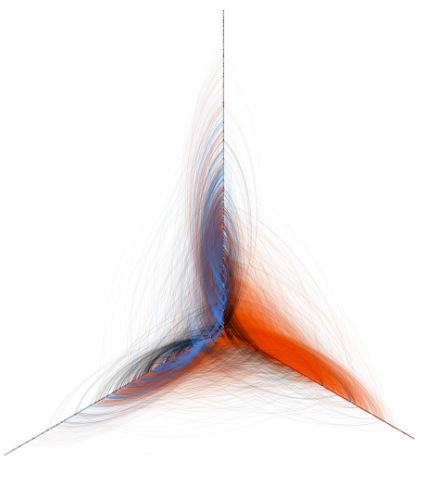Discrepancy in scientific authority and media visibility of climate change scientists and contrarians
About the talk
Climate change is a wicked multidimensional problem, whereby individual dimensions—environmental, socio-economic, technological, science communication—while separately challenging, together pose the 21st century’s pre-eminent grand challenge. In this talk I will present recent empirical work [Petersen, Vincent & Westerling, Nat. Comm. 2019] that analyzes the sociotechnical dimensions of climate change (CC) communication. In particular, we explore how the deluge of new media sources have contributed to the broad production and dissemination of information that runs counter to available evidence concerning trends, attribution, impact and scientific consensus levels relating to CC. This work contributes to the stream of media studies literature that traditionally focuses on article content, by instead employing an individual-centric approach. As such, this work contributes to a new field of people analytics by tracking the digital footprints of 386 prominent contrarians with 386 expert scientists across ∼200,000 research publications and ∼100,000 English-language digital and print media articles on climate change. Projecting these individuals across the same backdrop facilitates quantifying disparities in media visibility and scientific authority, and identifying organization patterns within their association networks. We show via direct comparison that contrarians are featured in 49% more media articles than scientists. Yet when comparing visibility in mainstream media sources only, we observe just a 1% excess visibility, which objectively demonstrates the crowding out of professional mainstream sources by the proliferation of new media sources, many of which contribute to the production and consumption of climate change disinformation at scale. These results demonstrate why climate scientists should increasingly exert their authority in scientific and public discourse, and why professional journalists and editors should adjust the disproportionate attention given to contrarians.
Bio:
Dr. Alexander Petersen is an Assistant Professor in the Management of Complex Systems Department at the University of California Merced, where he applies concepts and methods from complex systems, statistical physics and management science to study how innovators innovate and how individuals collaborate, compete and co-evolve in large multi scale socio-economic systems.




